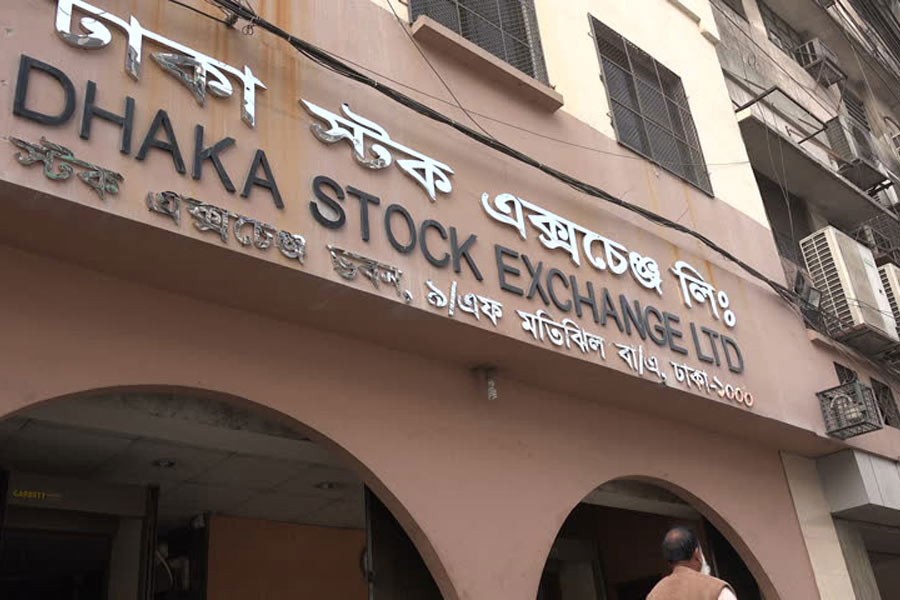Nine years have gone by but the Dhaka Stock Exchange has not yet benefitted from the 2013 demutualisation of the capital market-independent decision-making by a vibrant management detached from the grasp of owners, transparency of the operations, and technological advancement of the trading platform.
Before the demutualisation, shareholder directors comprised a majority in the board of directors at the DSE, which was why they could influence the exchange's operations.
Then the DSE completed the demutualisation process, replacing most of the shareholder directors with independent directors. That should have brought transparency in the running of the exchange.
But the recent resignation of a senior executive has given a different message to the public.
Tarique Amin Bhuiyan resigned from the position of the managing director, saying he had been unable to implement managerial decisions due to conflicts with the board.

"Those, who used to control affairs of the board, still have influence over the activities of the DSE," said Ahsan H Mansur, executive director of the Policy Research Institute (PRI).
As part of the demutualisation, the DSE struck a strategic partnership deal with a Chinese consortium to sell 25 per cent stake of the exchange. That was aimed at encouraging foreign portfolio investments and diversifying instruments.
Alongside the deal, Shenzhen and Shanghai stock exchanges in April, 2019 offered the DSE technical support worth nearly $37 million for free to upgrade the trading platform.
The DSE authority could not take advantage of that offer either.
"The stock exchange has a big role behind the market development. The Chinese consortium has capital capacity. They wanted to play a role behind the technical upgradation. The reason behind the failure sould be identified," Mr. Mansur said.
Had the technological backbone of the market been strengthened, technical problems due to which trading had to be stopped on several occasions could be averted.
Trading stopped twice on October 24 and October 30 for technical glitches, frustrating investors and inflicting revenue losses. Such repeated incidents also raised questions about the ability of the DSE to ensure smooth trading of stocks.
In August 2021, an expert committee formed by the Bangladesh Securities and Exchange Commission made some suggestions to modernize the trading platform.
The move was followed by the appointment of an auditor to inquire about the activities of the premier bourse, said BSEC Commissioner Dr Shaikh Shamsuddin Ahmed.
"After getting the auditor's report, we will be able to know the extent at which demutualisation has brought systematic changes," he added.
Apart from forming two separate committees, the securities regulator has also demanded written explanations on the technical issues that hampered trading.
The country's stock market is yet to see any significant outcome of the Dhaka bourse's much-expected demutualisation process intended to enforce market diversification, accountability and automation of the trading platform.
"It's not possible now to speak about the outcome of the demutualisation in a nut shell," said DSE Chairman Md. Eunusur Rahman.
Asked about the role of independent directors, he said they are renowned personalities with influence on their respective areas of work, and they make decisions unanimously on behalf of the stock exchange.
He ruled out the reported conflicts between the board and the management.
PRI Executive Director Ahsan H Mansur, however, said the DSE would not perform better unless conflicts between the DSE's board and the management were resolved.
"The time to take the strategic partner's offers is not yet over. The tenure of previous technical supports offered by international vendors, including Nasdaq, is yet to be completed," said the DSE chairman.
Insiders say conflicts are one of the main reasons as to why the market could not bring about effective changes, such as automation of the exchange and trading of new products.
Mr Ahmed said the securities regulator deeply feels that the DSE should have an effective role in market diversification.
As per the demutualisation act, the DSE was also supposed to offload 35 per cent of its shares through IPO (initial public offering) within three years after demutualisation.
The DSE failed to do so. In July last year, the securities regulator asked the DSE to accelerate the process of offloading shares.
On repeated insistence of the securities regulator, the trading of treasury bonds (T-Bonds) in the secondary market began on October 11. But the DSE has so far seen only eight transactions amid less interest of sellers.
The DSE earlier said Exchange-Traded Fund (ETF) would be launched in September this year. Any such move is yet to be visible.
Presently, the DSE has four trading boards such as main board, SME board, alternative trading board (ATB), and over-the-counter (OTC) market.
The SME board is in operations through the listing of 15 small companies while the ATB is yet to start operation.
The OTC market has been introduced before the exchange's demutualisation and the board has 56 companies earlier delisted from the main board. DSE officials said many of the OTC companies will be transferred to the ATB
The DSE in March 2016 launched a mobile-based share trading app namely "DSE Mobile". But trading through the app has not gained popularity yet amid a lack of publicity by the DSE, and stockbrokers' reluctance to facilitate the registration of investors with the app.
The number of active users of the application increased to around 55,000 whereas the number of active BO accounts is above 1.85 million.
Insiders said many stock brokers are reluctant to increase the number of mobile app users as investors can execute trading through the app without the help of traders.


